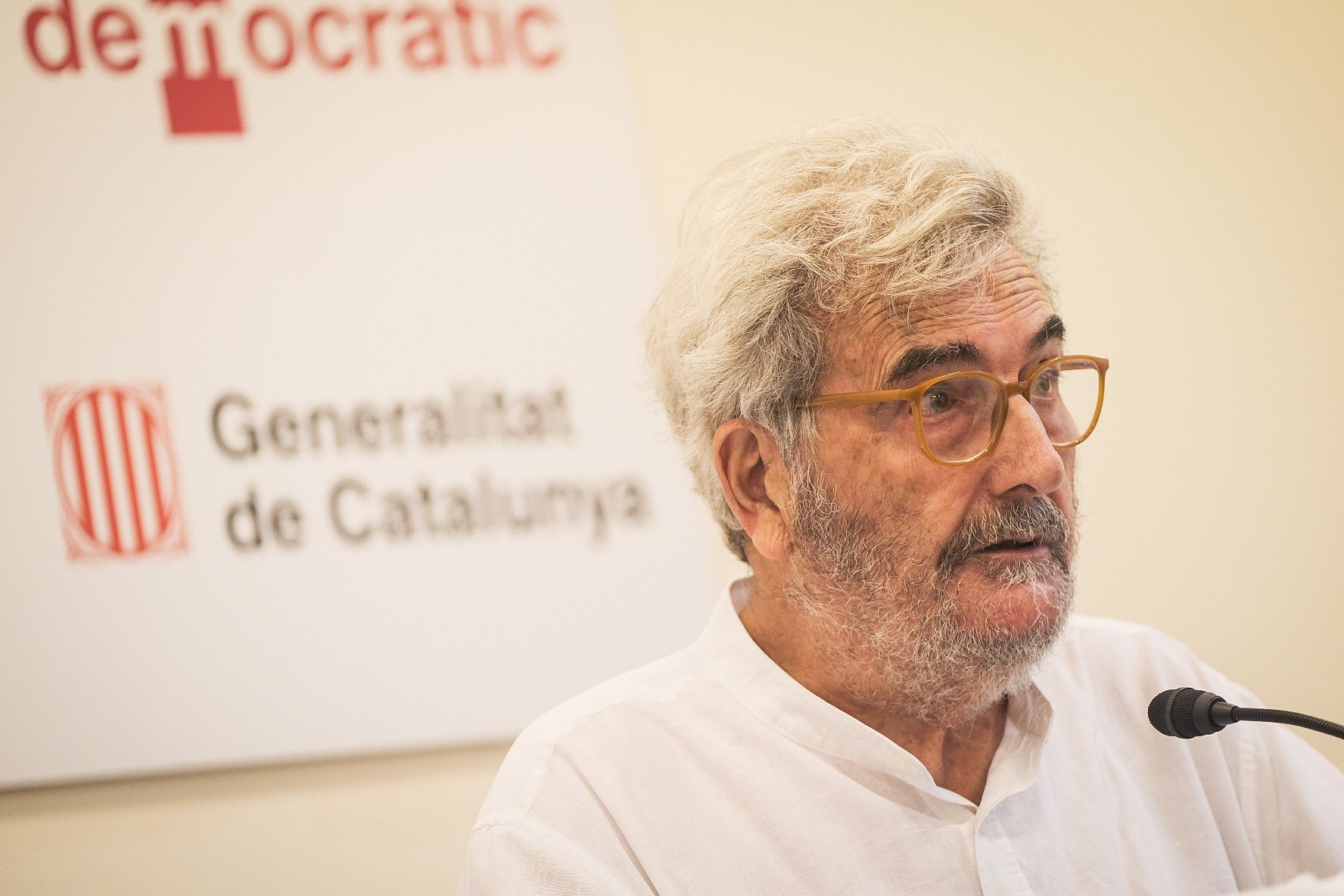The public prosecutors office in Barcelona has presented a direct appeal against a lower-court judge's decision not to admit the complaint of Carles Vallejo for torture in the Spanish National Police station located on Via Laietana during the Franco regime, as prosecution service sources have revealed. The prosecutors' view is based on a report drawn up by Spain's special prosecutor for the human rights and democratic remembrance area, Dolores Delgado, according to which the country's 2022 democratic remembrance law "goes beyond the jurisprudence" quoted by the Barcelona Court No 18 judge who rejected the complaint asserting that the state had a duty to investigate what happened. Aside from the prosecutors, Vallejo's defence team has also announced that they will appeal the rejection.
As the office of the chief public prosecutor explained in a statement, the rejection of the complaint alleging crimes against humanity and torture reported by the Catalan trade unionist is "premature", given the entry into force of the democratic remembrance law which determines that "an investigation of the facts and their context" must be carried out before deciding whether to continue with the procedure or to close it. With all this, the prosecution service admits, the jurisprudence cited by the Barcelona judge referring to the statute of limitations "corresponds to a legal framework prior to" the new law of democratic remembrance.
According to this statement, the issue is the need to apply "an interpretation with a focus on human rights and respectful of the central principles of international human rights law, treaties and conventions" on the matter in question, in accordance with Article 10.2 of the Spanish Constitution. For all that, the prosecutors firmly defend the application of the law approved last year, which has indisputable principles: "It recognizes the right to justice of the victims of human rights violations committed during the Spanish Civil War and the dictatorship, as well as the obligation of the state to investigate events from the point of view of justice".
In this case, the Barcelona prosecutor's office has acted in coordination with the new human rights and democratic remembrance unit, under the charge of former chief prosecutor and ex-justice minister, Dolores Delgado. This report adds that the new law establishes the state's obligation to investigate the facts to satisfy the victims' right to know. In the report it is argued that the "right to justice" must be applied with "greater rigour" when the subject of the investigation involves "serious violations of human rights" that may constitute "crimes against humanity" or may have been "committed in a context of crimes against humanity". In addition, Delgado relies on the jurisprudence of the European Court of Human Rights and the Supreme Court, as well as some minority reports by judges of the Constitutional Court.
The judge's arguments for rejecting the complaint
The move by the prosecution service follows the decision of the Barcelona judge to refuse the admission of the complaint, based on the argument that the torture reported by Vallejo by agents of the Political-Social Brigade in 1970 and 1971 constitutes an action that has been "prescribed and amnestied" - that is, it is no longer able to be prosecuted, due to Spain's so-called "Pact of Forgetting", the amnesty law decreed in 1977. In addition, the judge added that the alleged actions could not be considered as a crime against humanity, despite the fact that international organizations claim that the prosecution of such crimes does not ever become time-barred.
In the resolution, the judge detailed that the crime of torture was not included in the Spanish Penal Code until 1978, and nor was crime against humanity, until 2003. And, therefore, she argued that these crimes could not be retroactively applied against the police who were the subject of Vallejo's complaint. Finally, she concluded that the new democratic remembrance law of 2022 had not repealed the amnesty law of 1977 and therefore the principle of criminal legality had to prevail.
Irídia also files an appeal
Irídia, the human rights NGO that has brought Carles Vallejo's complaint, also presented an appeal to the Barcelona Audience this Wednesday to revoke the closure of the investigation, along with the Barcelona public prosecutor's office. Both appeals agree in affirming that the new democratic remembrance law of 2022 allows and obliges Franco's crimes to be investigated, despite the fact that Spain's amnesty law of 1977 remains in force.

